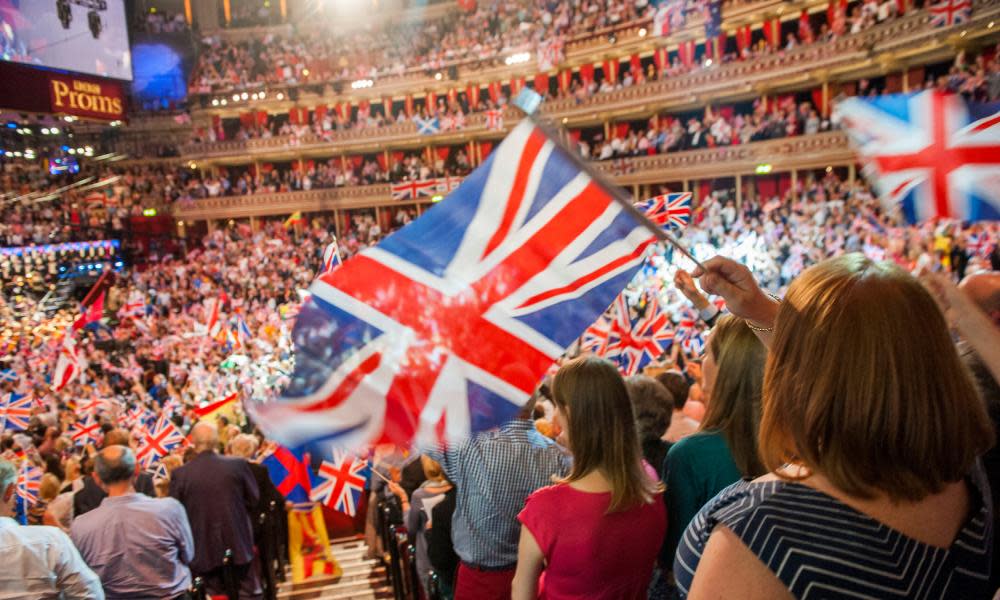Rule, Britannia! row is ‘a laughable irrelevance’, says former Proms chief

Politicians “meddling in concert programming” over the Last Night of the Proms are a “laughable irrelevance”, according to a former director of the BBC concert series.
Sir Nicholas Kenyon, writing in the Observer, described the “synthetic row” that has erupted over how Land of Hope and Glory and Rule, Britannia! will be performed without an audience.
Last week Boris Johnson, Oliver Dowden, the culture secretary, and Alok Sharma, the business secretary, all joined a cacophony of voices attacking the BBC after reports that the songs would be performed by orchestras without singers on stage.
Kenyon, who directed the Proms from 1996 until he became managing director of the Barbican Centre in 2007, writes that the controversy “combines kneejerk BBC bashing, a familiar and all-too-easy target; politicians meddling in concert programming, a laughable irrelevance; and the hounding on social media of a conductor, an unpleasant development”.
It is just untrue that the Last Night is an unchanging ritual. Elements have come and gone over the years as conductors have experimented
Sir Nicholas Kenyon
Johnson said he could not believe that “they will not sing the words”, traditionally sung by the Proms audience, which will be absent due to social distancing rules. Sharma suggested the BBC subtitle the words, enabling a karaoke-style event for audiences at home, while Dowden raised the matter with the BBC.
Nigel Farage and backbench Tory MPs had attacked the BBC following reports that executives were considering dropping the two pieces entirely, with Finnish conductor Dalia Stasevska blamed for the decision. The 36-year-old received death threats on social media, but she and the BBC both said she was not involved in deciding how the concerts would go ahead without an audience.
Related: The Proms have always kept pace with the world. That’s why they’re so glorious
Kenyon, who is a member of the board of the English National Opera and a music historian, writes that the Last Night is a national event and regular ritual: “It has to respond to the mood of the moment and to change with changing circumstances. It is just untrue that the Last Night is an unchanging ritual. Elements have come and gone over the years as conductors and programmers have tried new experiments.”
Sir Henry Wood, who conducted the Proms from their inception in 1895 until his death in 1944, wrote the Fantasia on British Sea Songs from which Rule, Britannia! is taken. “In all the years of Henry Wood’s stewardship of the Proms, the words of the verses in Rule, Britannia! were never sung, though as a dusty archive recording from 1933 demonstrates, nothing could stop the audience joining in with the chorus,” Kenyon adds.

 Yahoo News
Yahoo News 
